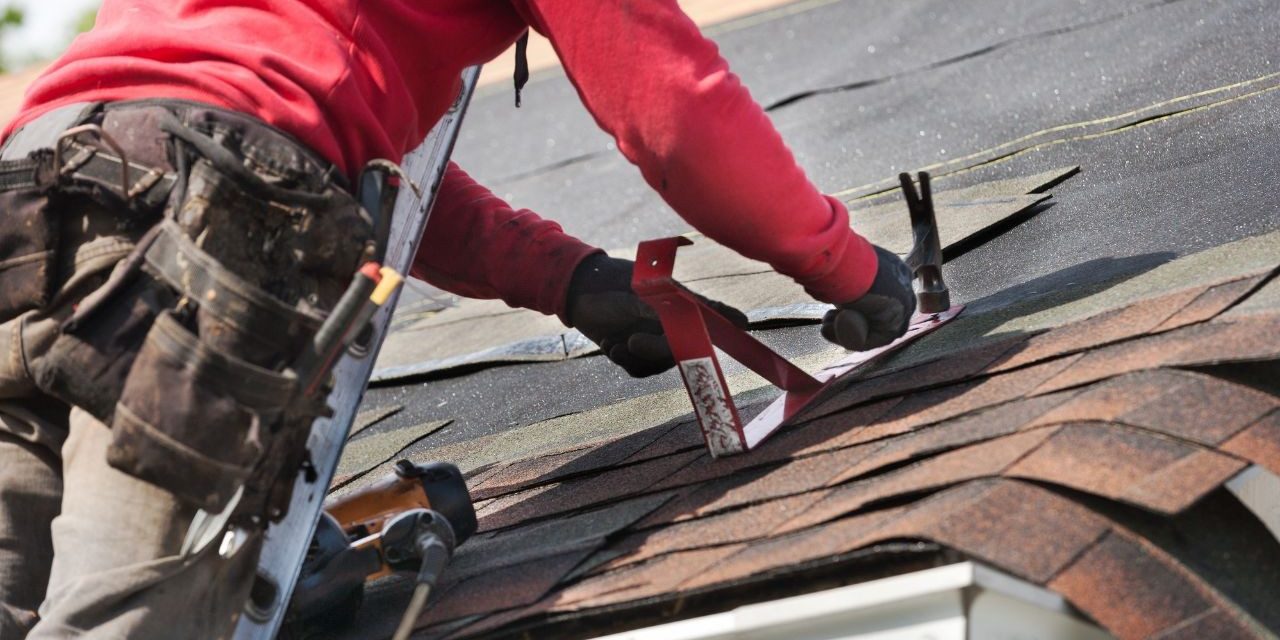Roof repair estimate is an essential part of maintaining your home’s integrity and value. A well-maintained roof not only protects your home from the elements but also enhances its overall appearance and efficiency. Understanding roof repair estimates is crucial for homeowners to make informed decisions about necessary repairs. This comprehensive guide will walk you through everything you need to know about roof repair estimates, from understanding their components to evaluating and negotiating them.
What is a Roof Repair Estimate?
Definition and Purpose
A roof repair estimate is a detailed outline provided by a contractor that lists the expected costs and scope of work for repairing a roof. This estimate helps homeowners understand the financial and logistical aspects of the repair project. It serves as a basis for budgeting and planning.
Key Components of an Estimate
Key components of a roof repair estimate include labor costs, material costs, and any additional fees. It also details the specific tasks to be performed, such as replacing shingles, fixing leaks, or repairing flashing. Understanding these components helps homeowners evaluate and compare different estimates effectively.
Why Estimates are Crucial
Estimates are crucial because they provide transparency and allow homeowners to make informed decisions. They prevent unexpected expenses by outlining the expected costs upfront. Moreover, estimates help in comparing different contractors, ensuring you get the best value for your money.
Types of Roof Repairs
Minor Repairs
Minor repairs include tasks like replacing a few damaged shingles, fixing small leaks, or sealing minor cracks. These repairs are generally less expensive and can be completed quickly. Despite their simplicity, timely minor repairs can prevent more significant damage and costlier repairs in the future.
Major Repairs
Major repairs involve more extensive work, such as replacing large sections of the roof, addressing significant water damage, or fixing structural issues. These repairs are more costly and time-consuming but are essential for maintaining the roof’s integrity and prolonging its lifespan.
Emergency Repairs
Emergency repairs are necessary when unexpected damage occurs, such as from a storm or severe weather. These repairs need to be addressed immediately to prevent further damage to the home. Emergency repairs can be more expensive due to the urgency and complexity involved.
Factors Influencing Roof Repair Estimates
Roof Material
The type of material used for your roof significantly influences the repair estimate. Asphalt shingles, metal roofing, tile, and slate each have different costs for materials and labor. For instance, asphalt shingles are generally less expensive to repair than tile or slate.
Roof Size and Pitch
The size and pitch of your roof affect the amount of material and labor required for repairs. Larger roofs or those with steep pitches can be more challenging to work on and may increase labor costs. Accurately measuring your roof will help provide a more precise estimate.
Extent of Damage
The extent of the damage plays a critical role in determining the repair estimate. Minor issues like small leaks or missing shingles will cost less than extensive damage requiring significant repairs or replacement. An accurate assessment of the damage ensures a realistic estimate.
How to Get a Roof Repair Estimate
Finding a Reputable Contractor
Finding a reputable contractor is the first step in obtaining a reliable roof repair estimate. Ask for recommendations from friends, family, or neighbors, and check online reviews and ratings. Ensure the contractor is licensed, insured, and has experience with your type of roof.
Requesting an Estimate
Requesting an estimate involves contacting contractors and providing details about the needed repairs. Most contractors offer free estimates and will schedule an inspection to assess the damage. Be prepared to discuss your budget and any specific concerns you have about the repairs.
Comparing Multiple Estimates
Comparing multiple estimates allows you to find the best value for your money. Look at the detailed breakdown of costs, scope of work, and materials used in each estimate. Consider the contractor’s reputation, experience, and warranty offerings when making your decision.
Understanding the Cost Breakdown
Labor Costs
Labor costs are a significant component of roof repair estimates. These costs cover the contractor’s time and expertise required to complete the repairs. Factors such as the complexity of the repair, the contractor’s experience, and the local labor market can influence labor costs.
Material Costs
Material costs vary based on the type and quality of materials used for the repair. Higher-quality materials may have a higher upfront cost but can offer better durability and longevity. Ensure the estimate includes a detailed list of materials to understand what you are paying for.
Additional Fees
Additional fees can include permits, disposal of old materials, and any unexpected expenses that may arise during the repair process. It’s important to clarify these fees with your contractor to avoid surprises. Ensure that the estimate outlines all potential additional costs.
Common Roof Repair Issues and Their Costs
Leaking Roofs
Leaking roofs are a common issue that can lead to significant damage if not addressed promptly. Repair costs can vary depending on the leak’s size and location. Small leaks may cost a few hundred dollars to fix, while extensive water damage could run into the thousands.
Damaged Shingles
Damaged shingles are often caused by weather, age, or impact. Repairing or replacing shingles is generally straightforward and costs less than other types of repairs. The cost will depend on the number of shingles that need replacement and the type of material used.
Flashing Repairs
Flashing is critical for preventing water from entering your home at roof joints and around chimneys. Damaged or improperly installed flashing can cause leaks. Repairing flashing typically involves sealing or replacing the metal pieces and can vary in cost depending on the extent of the damage.
How to Evaluate a Roof Repair Estimate
Analyzing the Scope of Work
Evaluate the scope of work outlined in the estimate to ensure it covers all necessary repairs. Check for detailed descriptions of the tasks to be performed, materials to be used, and the timeline for completion. A comprehensive scope of work ensures transparency and prevents misunderstandings.
Checking for Hidden Costs
Hidden costs can inflate the final bill, so it’s important to scrutinize the estimate for any potential extra charges. Ask the contractor to explain any ambiguous terms or fees. Ensure that the estimate includes all costs, such as permits, disposal fees, and unforeseen repairs.
Verifying Contractor Credentials
Verify the contractor’s credentials to ensure they are qualified to perform the work. Check for licensing, insurance, and any professional certifications. Look for reviews and testimonials from previous clients to gauge their reliability and quality of work.
Negotiating Roof Repair Estimates
Identifying Negotiable Items
Identify items in the estimate that may be negotiable, such as labor rates, material costs, or additional fees. Contractors may be willing to adjust prices or offer discounts, especially if you are considering multiple estimates. Discuss your budget constraints openly.
Tips for Successful Negotiation
Successful negotiation involves being informed, respectful, and clear about your expectations. Provide evidence of lower quotes from other contractors to support your case. Ask for itemized costs to understand where adjustments can be made without compromising quality.
When to Stand Firm
While negotiation is important, there are times when you should stand firm on certain aspects of the estimate. Quality materials and skilled labor are worth the investment to ensure a durable and effective repair. Prioritize value and long-term benefits over short-term savings.
The Importance of a Written Estimate
Legal Protection
A written estimate provides legal protection for both the homeowner and the contractor. It serves as a contract outlining the agreed-upon terms and conditions. In case of disputes, a written estimate can be used as evidence to resolve issues.
Clarity and Transparency
A written estimate ensures clarity and transparency by detailing all aspects of the repair project. It outlines the scope of work, costs, materials, and timelines. This document helps prevent misunderstandings and sets clear expectations for both parties.
Avoiding Misunderstandings
Having a written estimate helps avoid misunderstandings by providing a clear reference for the agreed-upon work and costs. Both the homeowner and contractor can refer to this document to ensure the project is completed as planned, reducing the risk of conflicts.
Tips for Reducing Roof Repair Costs
Regular Maintenance
Regular maintenance can prevent minor issues from becoming major repairs. Inspect your roof periodically and address small problems promptly. Cleaning gutters, removing debris, and checking for damage can extend your roof’s lifespan and reduce repair costs.
DIY Minor Repairs
For homeowners with some skills and confidence, DIY minor repairs can save money. Tasks like replacing a few shingles, sealing small leaks, or cleaning gutters can be done without professional help. Ensure you have the necessary tools and knowledge to perform these repairs safely.
Seasonal Inspections
Performing seasonal inspections can help identify potential problems before they escalate. Check your roof in the spring and fall, and after severe weather events. Early detection of issues allows for timely repairs and can save you money in the long run.
When to Opt for Roof Replacement Instead of Repair
Assessing Roof Age
Assessing the age of your roof is critical when deciding between repair and replacement. Most roofing materials have a lifespan of 20-30 years. If your roof is nearing the end of its expected life, replacement might be a more cost-effective solution than continuous repairs.
Cost Comparison
Compare the costs of repairing versus replacing your roof. If repair estimates are high and frequent, investing in a new roof could be more economical in the long run. Consider the benefits of improved energy efficiency, warranty coverage, and increased home value with a new roof.
Long-Term Benefits
Opting for roof replacement can offer long-term benefits, including enhanced durability, better aesthetics, and improved energy efficiency. A new roof can provide peace of mind, knowing your home is well-protected for years to come. Evaluate these benefits when making your decision.
FAQs About Roof Repair Estimates
- How long is a roof repair estimate valid?
Most roof repair estimates are valid for 30 to 90 days, but it’s best to confirm the validity period with your contractor.
- Can estimates change after work begins?
Yes, estimates can change if unexpected issues arise during the repair process. Ensure your contractor communicates any changes promptly.
- Do I need multiple estimates?
Yes, obtaining multiple estimates allows you to compare costs and services, ensuring you get the best value for your money.
- What should be included in a roof repair estimate?
A detailed estimate should include labor costs, material costs, additional fees, scope of work, and the project timeline.
- How do I know if an estimate is fair?
Compare estimates from different contractors, check market rates for materials and labor, and read reviews to gauge fairness.
- Are there financing options for roof repairs?
Many contractors offer financing options, and you can also explore home improvement loans or insurance coverage for roof repairs.
- How do I handle unexpected costs?
Discuss potential extra charges with your contractor beforehand and ensure a contingency plan is included in the estimate.
- What permits are needed for roof repairs?
Permit requirements vary by location. Your contractor should handle obtaining necessary permits and include related costs in the estimate.
- How can I verify a contractor’s estimate?
Verify estimates by checking the contractor’s credentials, reading reviews, and asking for references from previous clients.
- What should I do if I can’t afford roof repairs?
If roof repairs are beyond your budget, explore financing options, seek assistance programs, or prioritize emergency repairs first.
Conclusion
Roof repair estimates are an integral part of maintaining your home’s value and safety. By understanding the components of an estimate, evaluating costs, and knowing when to negotiate, you can make informed decisions that protect your investment. Regular maintenance and timely repairs will ensure your roof remains in excellent condition, providing peace of mind and long-term benefits. Remember, obtaining multiple estimates and thoroughly evaluating them will help you get the best value for your roof repair needs.







